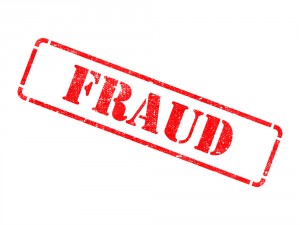 Our securities fraud attorneys are investigating customer complaints and a recent regulatory action filed with The Financial Industry Regulatory Authority (FINRA) against Paul Alexander (Alexander) formerly associated with Raymond James & Associates, Inc. (Raymond James), alleging Alexander engaged in a number of securities law violations including that the broker made unsuitable investments, unauthorized trading, breach of fiduciary duty, and securities fraud among other claims.
Our securities fraud attorneys are investigating customer complaints and a recent regulatory action filed with The Financial Industry Regulatory Authority (FINRA) against Paul Alexander (Alexander) formerly associated with Raymond James & Associates, Inc. (Raymond James), alleging Alexander engaged in a number of securities law violations including that the broker made unsuitable investments, unauthorized trading, breach of fiduciary duty, and securities fraud among other claims.
In November 2016 FINRA sanctioned Alexander after he consented to the entry of findings that in contravention of his member firm’s policies and procedures, Alexander effected transactions while exercising discretion without prior written authorization in customer accounts and without notifying his brokerage firm to accept the accounts as discretionary.
The most recent customer complaint filed against Alexander was in September 2015 alleging unauthorized trading causing $244,000 in damages. The claim was settled for $95,000.
Brokers have a responsibility treat investors fairly which includes obligations such as making only suitable investments for the client. In order to make a suitable recommendation the broker must meet certain requirements. Advisors are also not allowed to engage in unauthorized trading. Such trading occurs when a broker sells securities without the prior authority from the investor. All brokers are under an obligation to first discuss trades with the investor before executing them under NYSE Rule 408(a) and FINRA Rules 2510(b). These rules explicitly prohibit brokers from making discretionary trades in a customers’ non-discretionary accounts. The SEC has also found that unauthorized trading to be fraudulent nature because no disclosure could be more important to an investor than to be made aware that a trade will take place.
Alexander entered the securities industry in 2000. From April 2009 until April 2015, Alexander was associated with Raymond James out of the firm’s Palm Beach Gardens, Florida office location.
The number of events listed on Alexander brokercheck is high relative to his peers. According to InvestmentNews, only about 12% of financial advisors have any type of disclosure event on their records. Brokers must publicly disclose certain types of reportable events on their CRD including but not limited to customer complaints. In addition to disclosing client disputes brokers must divulge IRS tax liens, judgments, and criminal matters. However, FINRA’s records are not always complete according to a Wall Street Journal story that checked with 26 state regulators and found that at least 38,400 brokers had regulatory or financial red flags such as a personal bankruptcy that showed up in state records but not on BrokerCheck. More disturbing is the fact that 19,000 out of those 38,400 brokers had spotless BrokerCheck records.
Gana Weinstein LLP’s securities fraud attorneys represent investors who have suffered securities losses due to the mishandling of their accounts due to claims of fraud and negligence. The majority of these claims may be brought in securities arbitration before FINRA. Our consultations are free of charge and the firm is only compensated if you recover.
 Securities Lawyers Blog
Securities Lawyers Blog


